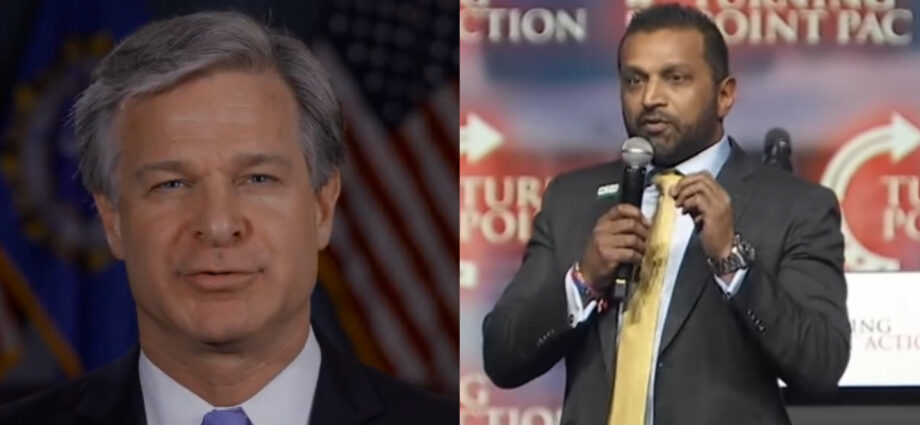In a significant development within the upper echelons of U.S. law enforcement, FBI Director Christopher Wray has announced his resignation, set to take effect before or on the upcoming presidential inauguration on January 20, 2025. This move comes as President-elect Donald Trump prepares to assume office again, signaling a potential reshaping of one of the nation’s premier law enforcement agencies.
Christopher Wray was appointed as FBI Director by President Donald Trump in 2017 following the controversial dismissal of James Comey. Known for his legal acumen, Wray, a former Assistant Attorney General, was seen as a stabilizing force amidst the tumultuous political environment surrounding the FBI. His tenure, extending over seven years, was marked by efforts to restore the bureau’s reputation for integrity and independence. However, his relationship with Trump soured over time, particularly as investigations into various high-profile matters unfolded under his watch.
Sources within the FBI and reports from various media outlets suggest that Wray’s decision to resign preemptively stems from the desire to avoid the political drama and potential controversy of being formally dismissed by Trump. The incoming administration has made it clear through public statements and social media that they intend to replace Wray with Kash Patel, a Trump loyalist who has served in multiple capacities within the Trump administration and is known for his aggressive stance against those perceived as political adversaries.
Posts found on X (formerly Twitter) and articles from sources like The Washington Times and NBC News have indicated that Wray’s resignation was motivated by not wanting to be “fired” by Trump, with some describing it as a move to maintain some dignity in his exit. This narrative is supported by the fact that Wray would be replaced by someone whose policies and approach to FBI leadership significantly differ from his own.
Wray’s resignation is not just a personnel change but carries substantial political implications. His departure is seen by some as a victory for those advocating for a more partisan approach to FBI leadership. Critics of Wray, particularly from the Republican side, have accused him of not being aggressive enough in pursuing investigations against figures associated with the Democratic party or those who have been at odds with Trump. The appointment of Kash Patel, known for his vocal support for Trump’s agendas, could signal a shift towards using the FBI as a tool for political vendettas, as some fear.
On the other hand, supporters of Wray’s tenure argue that his exit could undermine the FBI’s operational independence and integrity. They worry that under new leadership, the FBI might lean towards investigations that align with political motives rather than maintaining its role as an impartial law enforcement agency.
With Wray’s resignation, Deputy Director Paul Abbate is expected to take over temporarily. The Senate will need to confirm Trump’s nominee, Kash Patel, which might not be straightforward given the political climate, though recent indications from Republican senators suggest support for Patel’s confirmation.
This transition at the FBI occurs at a time when the nation is deeply polarized, with concerns about how law enforcement agencies operate within this charged atmosphere. The FBI’s role in national security, cybercrime, and domestic terrorism remains pivotal, and how these responsibilities are managed under new leadership will be closely watched by both allies and critics of the Trump administration.
Christopher Wray’s resignation as FBI Director marks the end of an era aimed at reinforcing institutional neutrality amidst political storms. As the FBI prepares for this leadership change, the implications for its future operations, especially in politically sensitive investigations, are profound. The incoming director, Kash Patel, will face the challenge of leading an agency that must balance aggressive law enforcement with the need to maintain public trust in its impartiality. Whether this transition will strengthen or undermine the FBI’s standing in American society remains a critical question as the new administration takes the helm.

